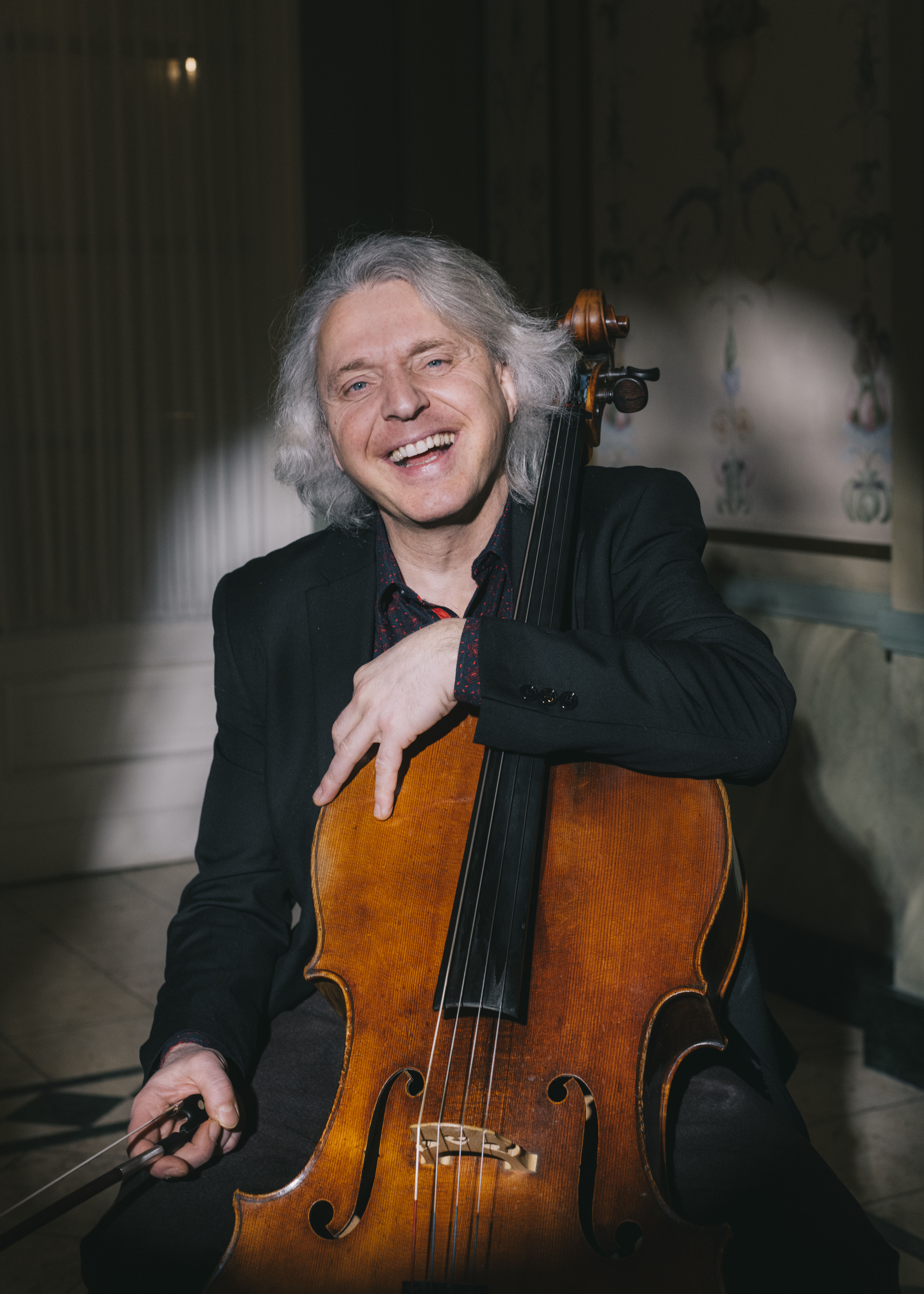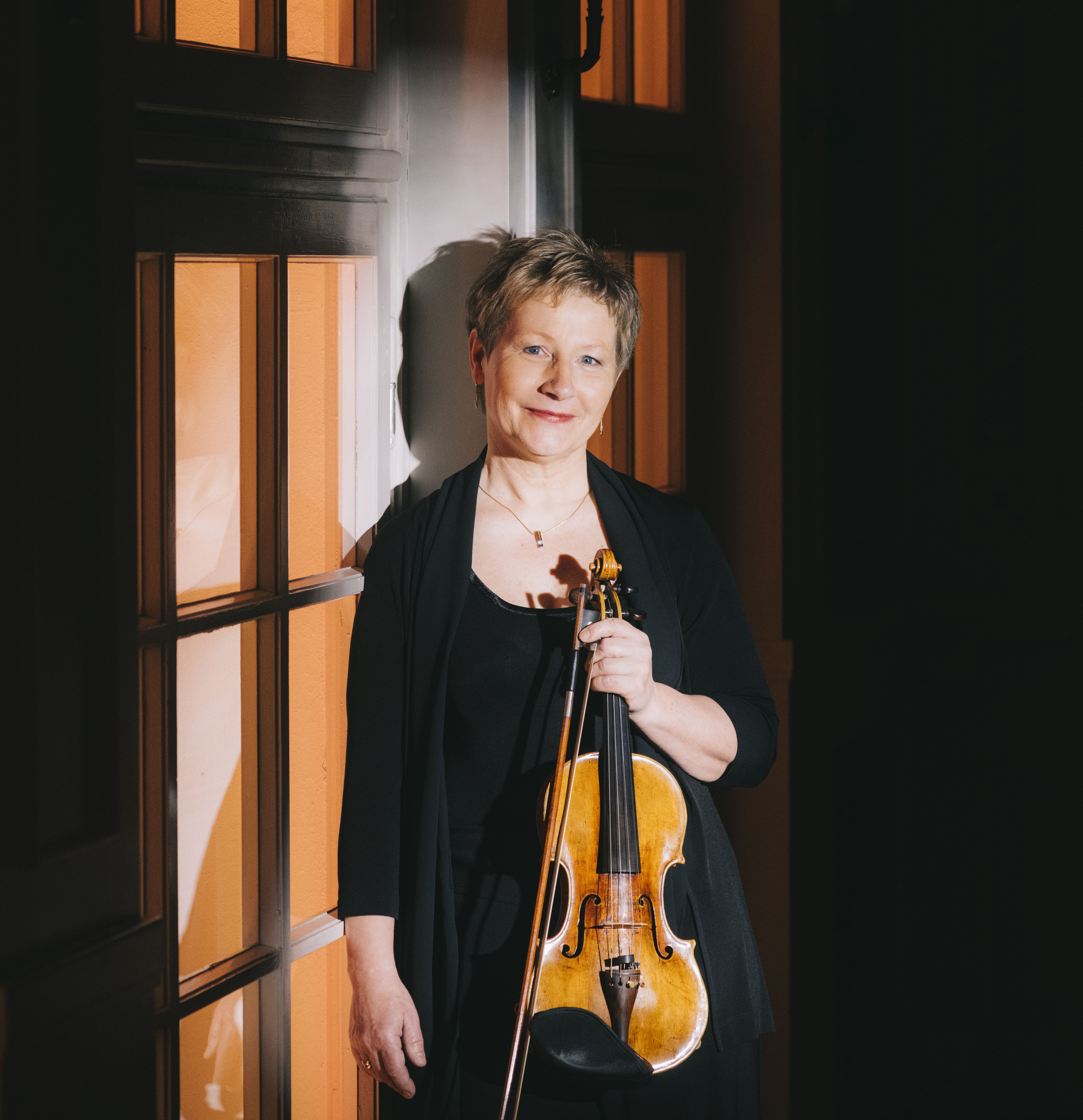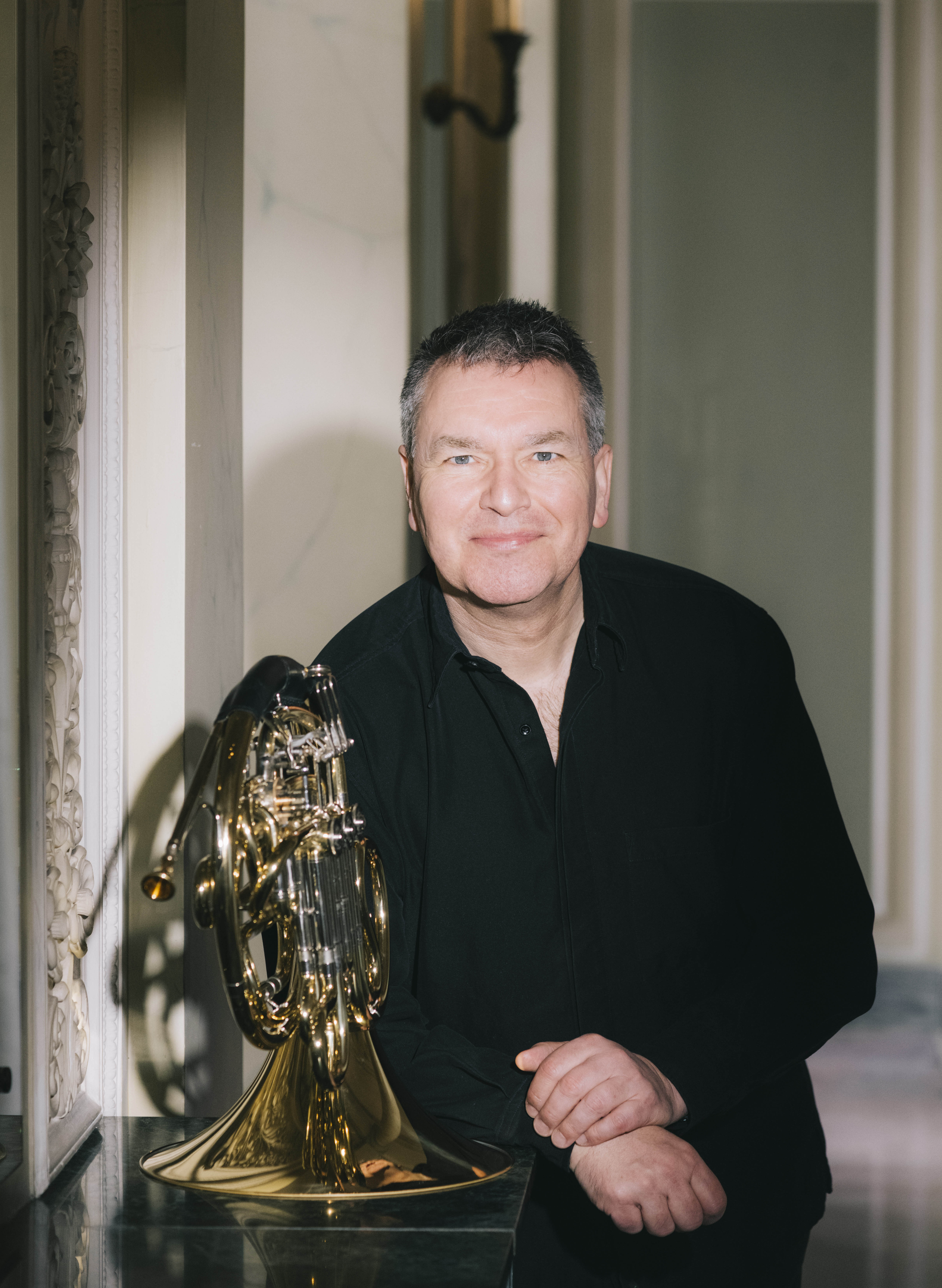13.00 Uhr
Führung durch das Konzerthaus Berlin
 Berlin Celebration Concert, "Ode an die Freiheit", mit Leonard Bernstein 1989 © Ludwig Schirmer
Berlin Celebration Concert, "Ode an die Freiheit", mit Leonard Bernstein 1989 © Ludwig Schirmer
35 years ago, the Berlin Wall fell less than a kilometre from Gendarmenmarkt. Three long-standing members of the Konzerthausorchesters (then Berliner Sinfonie-Orchester) told us about their impressions and everyday live in autumn 1989.
Our cover photo is a little ahead of time, as it captures a concert that nobody could have imagined during the turbulent months of October and November: A few weeks after the Fall of the Wall on November 9, Leonard Bernstein conducted a ‘Berlin Celebration Concert’ with Beethoven's Ninth on December 25. The orchestra included musicians from East and West Germany as well as from the countries of the four winning powers of the Second World War.
In the last movement, Bernstein changed the text: instead of the ‘Ode to Joy’, an ‘Ode to Freedom’ was sung. Decades later, many of those who were in the audience at the time still remember this impressive gesture and the very special atmosphere of the concert with great emotion, as we were told several times in the interviews we conducted five years ago.
Friedemann Ludwig, our principal cellist since 1988, comes from Dresden. He witnessed how upset the people there reacted to the closure of the Czech border. And he remembers the tense atmosphere in the orchestra when it was due to play a celebratory concert to mark the 40th anniversary of the German Democratic Republic on October 7.
“Something absolutely had to happen, because there was no way it could go on like this. The Hungarian border was open, and now the Czech border was closed to us. That was a very decisive point, you really have to say, where the GDR population once again experienced this feeling of being locked in. And we experienced at first hand how this line was besieged after this, it has to be said, unfortunate decision to allow the trains to cross the GDR again. Many people tried to catch the trains. And that's why there were major escalations on this line in Dresden.
Those were our previous experiences. But we had also expected to enter into a dialogue, and that didn't happen. That's why it escalated in Dresden, with really violent demonstrations. Stones were thrown and people were injured on both sides, police and demonstrators, and the discussion really went through the families. In some cases, it was fathers against sons. That really was the case, it's not just a big term, it was the truth, it was a reality that really happened - that someone was sitting on an armoured personnel carrier and had to drive into the crowd, where perhaps his son or his son's friend was present. Of course they refused. So that was highly explosive.
About my situation: We had to play at the celebratory concert for the 40th ‘Republic Day’ on October 7. As a state orchestra, that was our obligation. We actually held an orchestra meeting beforehand to decide whether we should play, because the whole situation had made it very questionable. Nobody knew what would really happen to the country, i.e. what the consequences would be if we didn't play. All in all, we decided to take part for the time being. And I had to move from the demonstration habitus to the representation habitus. That was simply my life back then. It was all linked to the great hope, though, that something would change after all.”

Christiane Ulbrich, a member of the orchestra since 1986, was also born in Dresden. Even when the Wall was still standing, the Berliner Sinfonie-Orchester was often on tour abroad, including a seven-week “world tour” in 1988. The young violinist particularly enjoyed this: “While my colleagues were reading on the bus, I just looked out of the window and soaked up the scenery. I thought: “Who knows when you'll be able to see this again next time?” How soon this opportunity would present itself was not foreseeable at all at the time.
Christiane Ulbrich describes the dramatic atmosphere in which the celebratory concert for the 40th “Anniversary of the Republic” took place in the Palace of the Republic on October 7: “There was a raging crowd outside, chanting “We are the people” and “Gorbi, Gorbi” - and we looked from inside to outside and felt a bit strange. We were on the wrong side, where we didn't really belong and didn't want to be. [...] I didn't live far away and could walk home, I asked a colleague to accompany me because I was simply afraid to walk the streets alone with my instrument. You never knew what direction the situation would take and you still had Beijing in the back of your mind [the uprising of the Chinese population on Tiananmen Square on June 3 and 4, 1989, which was violently suppressed by the military; ed.]
If you could contribute something here in Berlin with your own means, for example when there was the big rally on Alex, we were all there. That was really exciting. There was a feeling that something could change now. At the time, I had no idea what direction these changes would take. I would never have thought that the two German states would unite. They were actually so contradictory for me that I thought it would never work.”
The violinist has a small private archive from the fall of 1989: “I collected newspaper articles. They were interesting for me because I thought that what was written back then would otherwise be forgotten.”

Our french horn player Andreas Böhlke, who comes from Thuringia and is a member of the orchestra since 1989, learnt about the fall of the Berlin Wall literally on his way onto the stage of the Great Hall. On November 9, he was scheduled to play principal horn at a concert with the Berliner Sinfonie-Orchester.
"We got into the swing of things and in the meantime, around 7 pm, Schabowski said his famous sentence, that's still marvellous: ‘I think ... from now on?’ We were standing next to the stage manager's box, and just before we went out on stage, someone who might have had a radio on or something looked out and said: ‘Have you heard? We can cross over to the West, just like that, with our ID cards." - ‘What?’ - ‘Really?’ - ‘Rubbish!’ - ‘We have to go in. Please go to the stage!’
So I went on stage, sat down and then a modern play by Siegfried Stöckigt started. At the beginning, I had a couple of muffled notes, very quiet, sometimes a few quiet notes, sometimes a chord, so nothing great, but always like this... I sat there, listened to the music and thought: ‘Now you can maybe go to the Philharmonie - and to the Waldbühne!’ Then my neighbour nudged me and I realised that I'd already had to missed my cue twice. So I quickly held out my little notes and then left the stage slightly confused.
Then I had to gather myself because next came Dvořák 7. I was the associate principal at the time, so I played solo horn. That was quite a task. I was new, so I had to concentrate really hard.
After that, I thought to myself: ‘What are you going to do now?’ And I drove home to Hellersdorf - quite a distance from the concert hall next to Checkpoint Charlie. When I got home, we watched the Trabants rolling over there on TV. As I remember it, two or three days later I crossed the checkpoint into West Berlin with my wife. To the welcome concert with Barenboim, 7th Beethoven in the Philharmonie! And some time later, to the Waldbühne for Tina Turner.“
